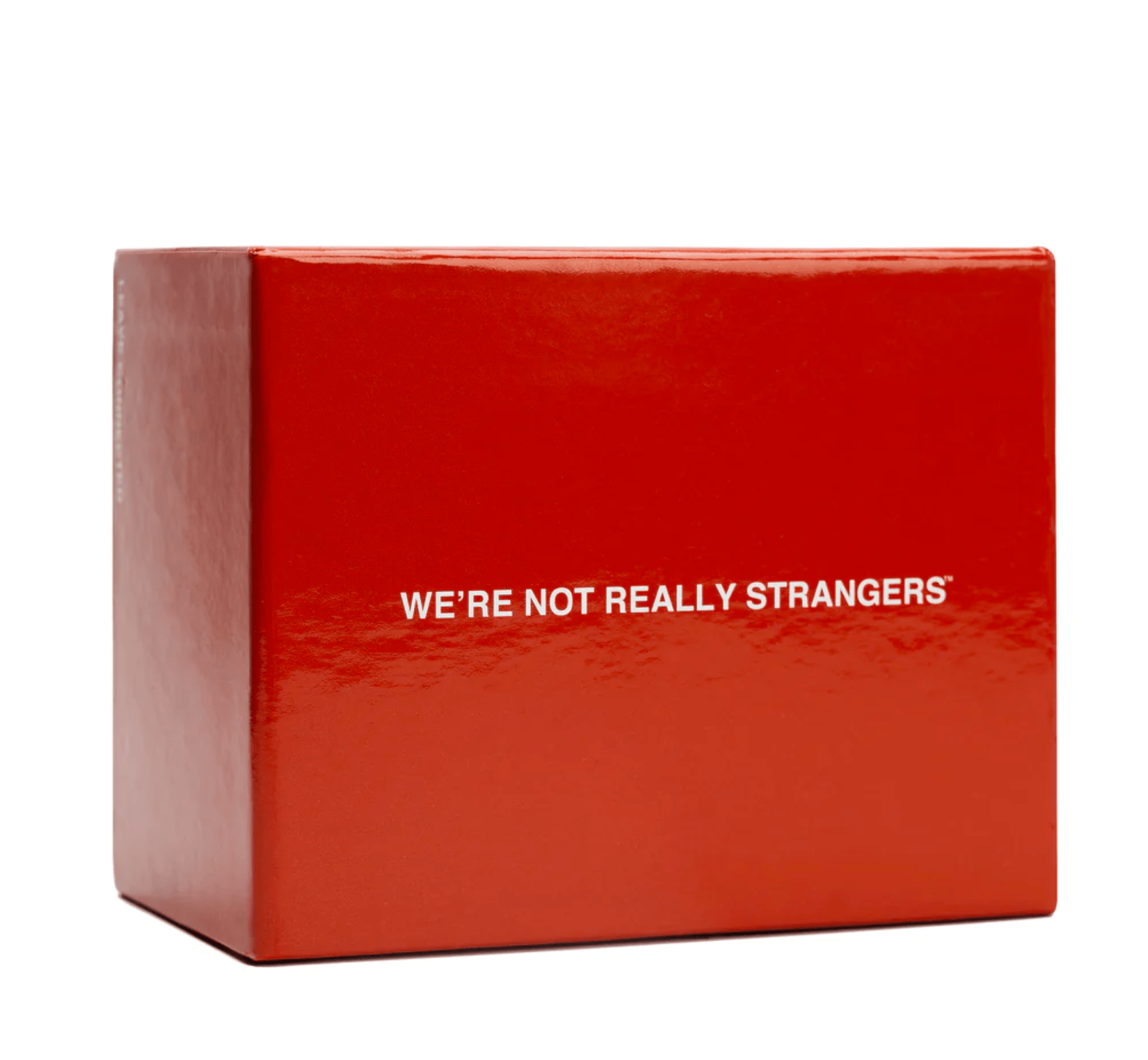We’re not Really Strangers is a ” getting to know you” style card game designed to have all players leave with a closer relationship or understanding of one another than when they began. I would argue that We’re not Really Strangers creates interactions between players that extend outside the bounds of the game both during and after its playtime. The game has three rounds of questions which feature prompts of that require increasing levels of vulnerability to answer. During each turn, the game asks players to draw a card. The card either has a question prompt that the card drawer must answer after allowing the other player to guess their response, or an activity that all players must complete, which involves an interaction with one another. The first round has rather surface level questions like “What is your favorite compliment to receive” which I noticed helped to break the ice and slowly submerge myself and the other player into the environment of the game. Yet, with later questions like ” what insecurity of yours holds you back the most?” and “What lesson took you the longest to learn?” (which I encountered in my own play of the game), I believe that there is a very high level of vulnerability required to play this game to conclusion. This vulnerability, which was not present in my relationship with the other player before, could not be redacted after the game and in my opinion has had a lasting effect on the relationship of all players involved. Similarly, the action card at the end of the game which tells players to write one another a letter that the other cannot open until after the game, works to create a dynamic of fellowship through mutual care and vulnerability that must be shared by all players throughout the game, yet continues even after the game has been completed. The game forces players to interact with one another, as it is the main component of playing the game. However there are the additional mechanics of a “dig deeper” card, which allows players to push one another to expand upon a topic of their drawn card, but also allows players to consider that they have an option to try and connect with other players through active listening. The intimate setting of the magic circle which is constructed by the tone of the game’s dynamics in combination with this “dig deeper” mechanic encourages players to push their interaction beyond what the game strictly requires in order to learn more about one another. I saw this in practice with my own play of the game, in which we would often ask follow up questions for the sake of getting to know each other better, rather than just progress the game or to answer more questions ourselves, as I’ve noticed to be a common occurrence in other games. After playing the game, I found myself a lot more comfortable with the other player, and I have had conversations with friends about topics uncovered in past plays of the game. The mechanics and dynamics of the game that I saw in my critical Play of We’re Not Really Strangers confirms to me that the game has an impact on the interactions of its players both inside and outside the confines of the game. Rating 9.8/1o!
About the author
Related Posts

April 28, 2022
Project 2: Moodboard, Playlist, and Description

April 28, 2022
Blog Response: Visual Design of Games
April 27, 2022


